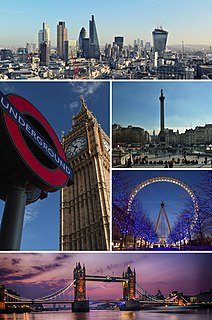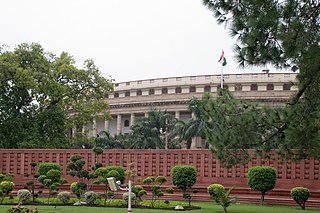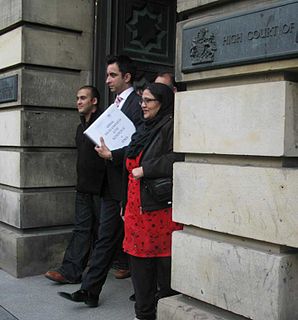| Date | September 19, 2011 |
|---|---|
| Time | before 00:00 BST (UTC+01:00) |
| Location | Ladypool Road, Birmingham, United Kingdom |
| Suspect(s) | Irfan Naseer Shahid Kasam Khan Khobaib Hussain Ishaaq Hussain Narweed Ali Irfan Khalid Ashik Ali Rahin Ahmed Bahader Ali Mohammed Rizwan Mujahid Hussain |
| Charges | terrorism-related offenses under the Terrorism Act 2006 |
| Verdict | Guilty |
| Convictions | Sentenced to prison terms ranging from 40 months to life imprisonment |
Operation Pitsford is a counter-terrorism investigation by the British police that has resulted in twelve people so far being arrested and charged with offences under the Terrorism Act 2006.

The United Kingdom (UK), officially the United Kingdom of Great Britain and Northern Ireland, and sometimes referred to as Britain, is a sovereign country located off the north-western coast of the European mainland. The United Kingdom includes the island of Great Britain, the north-eastern part of the island of Ireland, and many smaller islands. Northern Ireland is the only part of the United Kingdom that shares a land border with another sovereign state, the Republic of Ireland. Apart from this land border, the United Kingdom is surrounded by the Atlantic Ocean, with the North Sea to the east, the English Channel to the south and the Celtic Sea to the south-west, giving it the 12th-longest coastline in the world. The Irish Sea lies between Great Britain and Ireland. With an area of 242,500 square kilometres (93,600 sq mi), the United Kingdom is the 78th-largest sovereign state in the world. It is also the 22nd-most populous country, with an estimated 66.0 million inhabitants in 2017.

The Terrorism Act 2006 is an Act of the Parliament of the United Kingdom that received Royal assent on 30 March 2006, after being introduced on 12 October 2005. The Act creates new offences related to terrorism, and amends existing ones. The Act was drafted in the aftermath of the 7 July 2005 London bombings, and some of its terms have proven to be highly controversial. The government considered the act a necessary response to an unparalleled terrorist threat; it has encountered opposition from those who feel that it is an undue imposition on civil liberties, and could increase the terrorism risk.
On 19 September 2011 West Midlands Police arrested a woman who lived in the Alum Rock area of Birmingham. Salma Kabal, 22, appeared in court on 16 November 2011 accused of failing to inform police that her husband, Ashik Ali, planned to kill himself in a suicide bomb attack. The official charge was that she “knew or believed might be of material assistance in securing the apprehension, prosecution or conviction of another person for an offence involving the commission, preparation or instigation of an act of terrorism". [1]

West Midlands Police is the territorial police force responsible for policing the metropolitan county of West Midlands in England.

Birmingham is the second-most populous city in the United Kingdom, after London, and the most populous city in the English Midlands. It is also the most populous metropolitan district in the United Kingdom, with an estimated 1,137,123 inhabitants, and is considered the social, cultural, financial, and commercial centre of the Midlands. It is the main local government of the West Midlands conurbation, which is the third most populated urban area in the United Kingdom, with a population of 2,897,303 in 2017. The wider Birmingham metropolitan area is the second largest in the United Kingdom with a population of over 4.3 million. It is frequently referred to as the United Kingdom's "second city".
On 15 November 2011 West Midlands Counter Terrorism Unit arrested four people at their homes who were from Sparkhill Birmingham, on suspicion of conducting terrorist offences. The four men appeared in court in Westminster London on 19 November 2011 charged with terrorism offences. They were named as Khobaib Hussain, Ishaaq Hussain and Shahid Kasam Khan, all 19, and Naweed Mahmood Ali, 24. They were charged with fundraising for terrorist purposes and for travelling to Pakistan for terrorist training. [2]

Sparkhill is an inner-city area of Birmingham, England, situated between Springfield, Hall Green and Sparkbrook.

Westminster is an area in central London within the City of Westminster, part of the West End, on the north bank of the River Thames. Westminster's concentration of visitor attractions and historic landmarks, one of the highest in London, includes the Palace of Westminster, Buckingham Palace, Westminster Abbey and Westminster Cathedral.

London is the capital and largest city of both England and the United Kingdom. Standing on the River Thames in the south-east of England, at the head of its 50-mile (80 km) estuary leading to the North Sea, London has been a major settlement for two millennia. Londinium was founded by the Romans. The City of London, London's ancient core − an area of just 1.12 square miles (2.9 km2) and colloquially known as the Square Mile − retains boundaries that follow closely its medieval limits. The City of Westminster is also an Inner London borough holding city status. Greater London is governed by the Mayor of London and the London Assembly.
On 26 April 2013, eleven British Muslims were sentenced to prison terms ranging from 40 months to life imprisonment. [3]
Life imprisonment is any sentence of imprisonment for a crime under which convicted persons are to remain in prison either for the rest of their natural life or until paroled. Crimes for which, in some countries, a person could receive this sentence include murder, attempted murder, conspiracy to commit murder, blasphemy, apostasy, terrorism, severe child abuse, rape, child rape, espionage, treason, high treason, drug dealing, drug trafficking, drug possession, human trafficking, severe cases of fraud, severe cases of financial crimes, aggravated criminal damage in English law, and aggravated cases of arson, kidnapping, burglary, or robbery which result in death or grievous bodily harm, piracy, aircraft hijacking, and in certain cases genocide, ethnic cleansing, crimes against humanity, certain war crimes or any three felonies in case of three strikes law. Life imprisonment can also be imposed, in certain countries, for traffic offenses causing death. The life sentence does not exist in all countries, and Portugal was the first to abolish life imprisonment, in 1884. For more info about life imprisonment in other countries worldwide, refer here.





